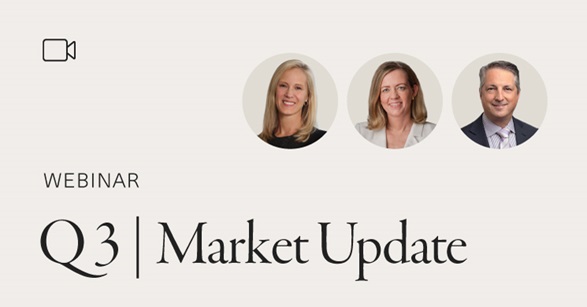There’s a lot to consider when choosing a new bank. First are the practical things, like the types of accounts, fees, interest rates, ATM availability, and proximity to your home. However, these attributes are often so similar in nature that it could still be challenging to make a final decision.
For a deeper comparison, you'll want to understand what each bank has to offer you as a customer — beyond the basics.
Consider this: In a study by Market Force Information, the second most popular reason for switching banks (right below seeking lower fees) was general unhappiness with service, chosen by 39% of respondents.
To help you select the right bank for your needs, here are some next-level questions to consider as you evaluate your options.
What is the customer service really like?
If you’ve ever had a problem with an account or a complex situation that needed some guidance, you know how important good customer service is. At the very least, you want to be able to speak with an actual human when you need to.
Even beyond that, wouldn’t it be great if you could connect with someone who actually knows you and understands your needs? In fact, in one banking consumer study, 76% of people chose accessibility and availability of staff as an important attribute of their banking experience – the most popular reason cited.
How to figure it out: Reading reviews on your bank options is a good way to get a feel for what customers are saying about them. You can also look for something called the "net promoter score," which gauges client satisfaction and loyalty. If an institution has an above-average net promoter score, above the industry benchmark of 34, you can assume that client experience is a top priority.
How accessible is the bank in an emergency?
A time may come when you need immediate funds for an emergency. It’s important to know that your prospective bank will be there to help. Whether it's by phone, online chat, or a responsive social media page, today's customers have come to expect that their banks are there for them beyond traditional banking hours, and with a variety of services to accommodate multiple circumstances.
How to figure it out: Check out the website or call to ask about emergency services. Some questions to ask: What happens if you're traveling and you lose your ATM card? Is there a 24-hour hotline or online chat available? How quickly can you transfer funds from one account to another? Do they have a mobile app that you can use on-the-go for self-service?
Are there experts available to help with financial decisions?
Banking should be more than a place to hold onto your money. A good bank will go above and beyond and bring together experts who can provide advice when you have questions about your financial goals beyond banking.
Financing life's milestones such as buying a home, saving for college, managing wealth and preparing for retirement requires preparation and research to determine your best options. A trusted relationship with a bank can offer customers a starting point and safe place to discuss and plan for those all-important financial decisions.
How to figure it out: Determine your prospective bank's point of contact if you have general questions. Ask if there is someone to help with financial planning, wealth management, small business solutions and other services.
Does the bank have staying power?
If you’re putting your financial trust in an institution, and begin opening all sorts of accounts, you want to be sure that it is stable, profitable, and maintains robust capital levels and liquidity.
For one thing, it can be frustrating to have to go through the process of moving accounts and finding a new place to bank if the one you rely on closes down. But it's also comforting to know that the institution that is managing your financial accounts follows good business practices.
How to figure it out: Explore signs of stability, such as how long the bank has been in business, its suite of services, what its total assets are, and its overall business reputation. A bank's annual report can provide insight into its financial picture, values and future plans.
How are my information and accounts protected?
Your personal and financial information is important and should be safeguarded by whichever banking institution you choose. Look for a bank that is transparent about the aggressive and comprehensive measures it takes to guard sensitive data and protect customer privacy. Some may even go beyond what’s required to offer extra features, such as internet security tools for clients.
How to figure it out: A reputable bank should share what it's doing to protect data and client information. It should also provide digital safety tools to help educate and protect customers.
Perhaps second only to your healthcare providers, it's so important to feel good about your banking relationships. Knowing that your hard-earned dollars are not only safe and secure, but that you have friendly and knowledgeable people to turn to when you have questions about financial products or issues come up can provide peace of mind. It can also offer convenience to manage different aspects of your finances with one institution.
First Republic Bank is committed to customer satisfaction and always puts its clients first. That's why its most recent Net Promoter score is more than double the U.S. banking industry average. Learn more about First Republic Bank's banking products and exceptional services today.
This information is governed by our Terms and Conditions of Use.




